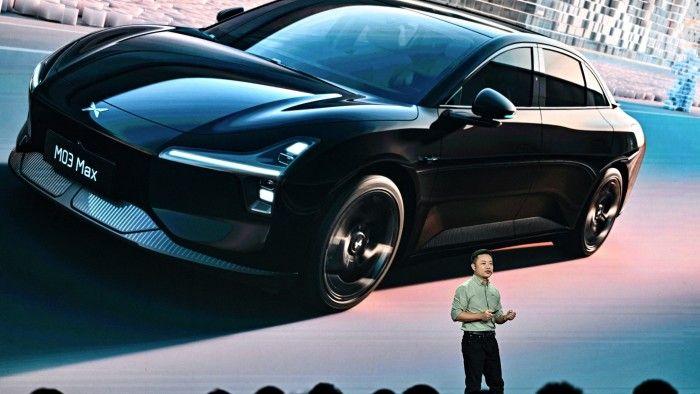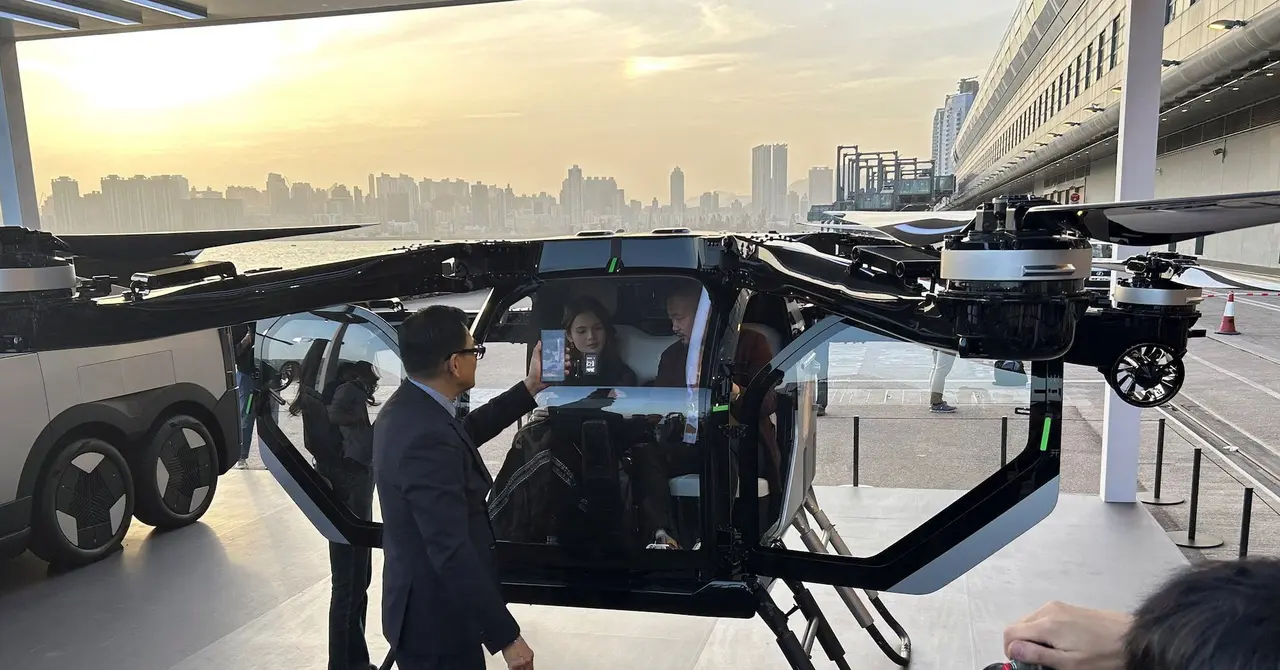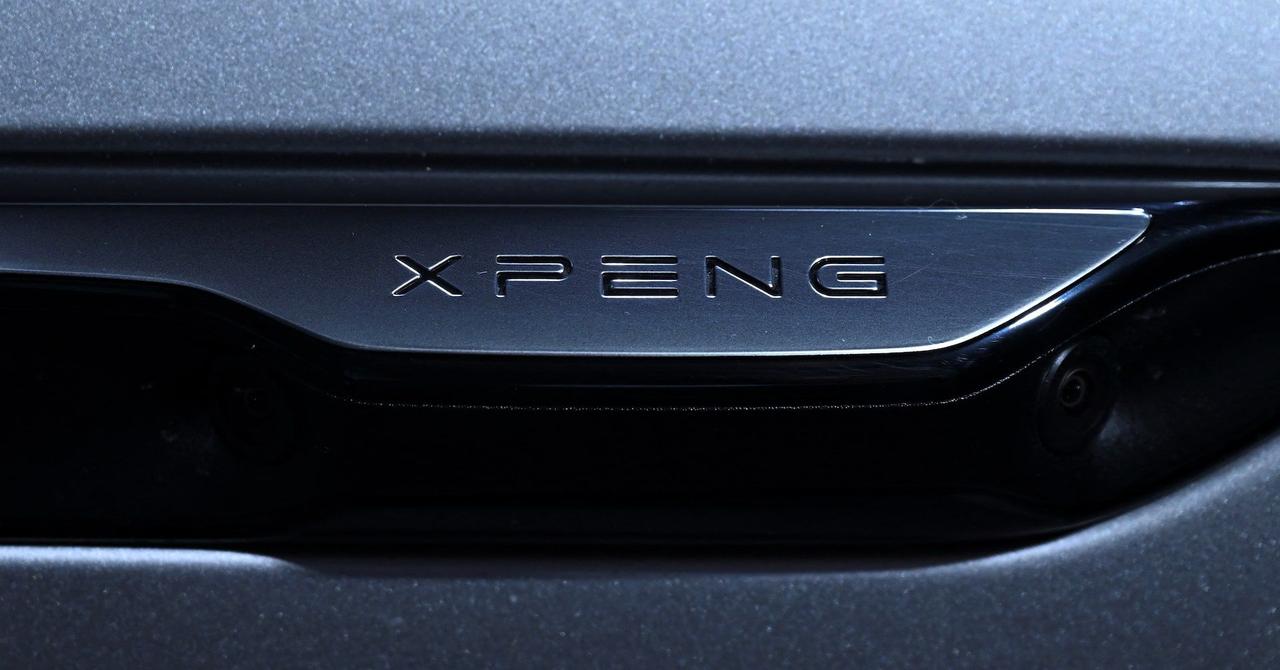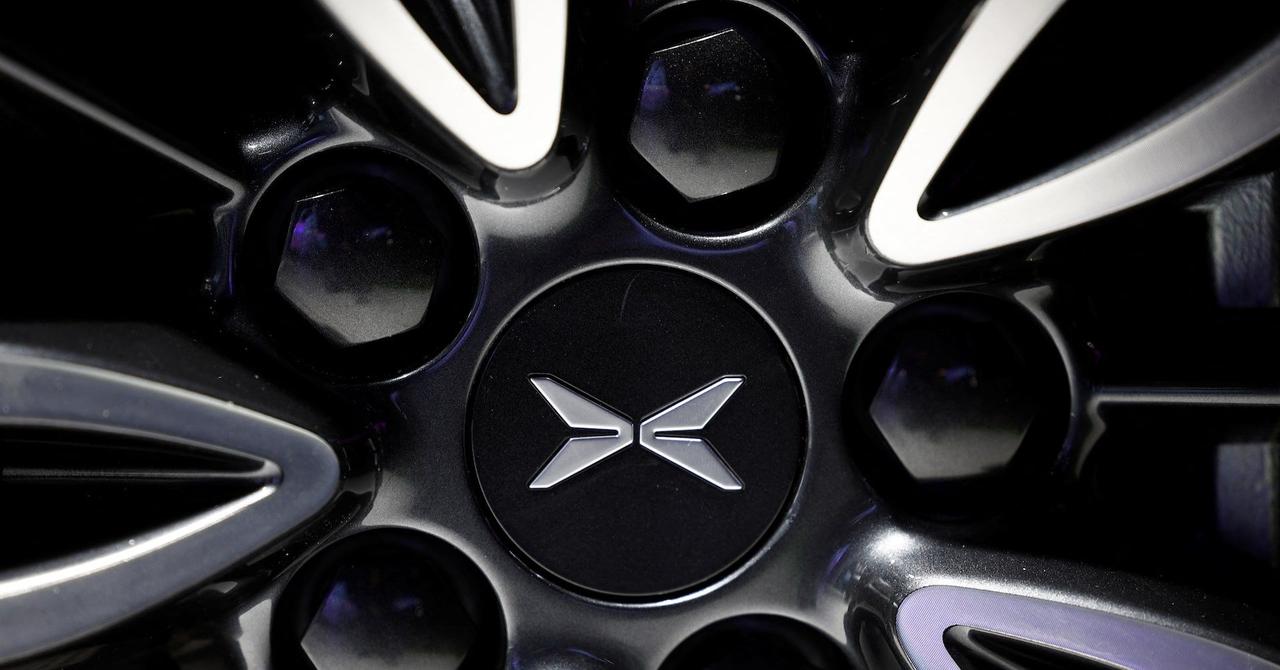Chinese EV Maker XPeng Considers European Manufacturing to Avoid EU Tariffs
2 Sources
2 Sources
[1]
China EV maker Xpeng wants to start building cars in Europe, particularly in areas with 'low labor risks'
Xpeng Inc. is looking for a manufacturing site in Europe, making it the latest Chinese electric-vehicle maker seeking to mitigate the impact of import tariffs by building its cars in the region. Volkswagen AG's Chinese partner is in the initial stages of selecting a site in the European Union as part of its future plan to localize production, chief executive officer He Xiaopeng said in an interview with Bloomberg in its headquarters in Guangzhou, China, on Thursday. The company expects to build capacity in areas with "relatively low labor risks," He said, adding that Xpeng also plans to set up a large-scale data center in Europe as efficient software collection becomes paramount for cars' intelligent driving features. Xpeng's broad plan of going global isn't going to be impacted by higher levies, He maintained, although he noted that some "profits from European countries will be reduced after the tariff increase." Establishing a manufacturing footprint in Europe would see Xpeng join the growing ranks of Chinese EV makers, including BYD Co., Chery Automobile Co. and Zhejiang Geely Holding Group Co.'s Zeekr, looking to build out production in the region to minimize the impact of the European Union's decision to increase duties on China-made EVs to as much as 36.3%. Xpeng is set to face an additional tariff of 21.3%. Added European levies are just one aspect of a wider global trade dispute. The U.S. has imposed tariffs on Chinese EV imports that can top 100%, as the world's two biggest economies spar over an industry that's grown rapidly thanks partly to Beijing's subsidies. The trade actions have only added to the challenges facing the 10-year-old company in recent years. Xpeng has also struggled with tepid domestic sales, product planning disputes, and a prolonged price war in the Chinese market. Its share price has more than halved since January. The carmaker delivered around 50,000 vehicles in the first half, only about one-fifth of BYD Co.'s monthly sales. Though its delivery outlook for the current quarter exceeded analysts' estimates, its projected revenue fell well short of expectations, according to its latest quarterly report. One bright spot for Xpeng is its year-old partnership with VW. Hundreds of the German carmaker's staff are now working at its headquarters in Guangzhou. Vice president-level managers from both sides meet at least once a week, He said, noting the company is "making every effort to ensure the partnership works well." One example of how the collaboration is benefiting the Chinese company lies in managing complex supply chains. With Volkswagen's help, Xpeng's gross margin in the second quarter climbed to 14% from negative 3.9% a year ago. Xpeng also sees its expertise in artificial intelligence and advanced assisted driving features as helping it make inroads into Europe. That's one reason why it will have to set up a large-scale data center there before it can introduce those features in the region, He said. U.S.-listed Xpeng has also invested heavily in AI-related research and development, including its own chips, He said, noting semiconductors will play more of a critical role in "intelligent" vehicles than battery cells. "Selling a million AI-powered cars per year will be a prerequisite for the companies that finally emerge as the winners in the next 10 years, in which the human driver will maybe touch the steering wheel less than once per day on average on their daily commute," He said. "We are going to see companies rolling out such products from 2025, and Xpeng will be among them."
[2]
China's Xpeng Aims to Manufacture EVs in Europe to Blunt Tariffs
Xpeng Inc. is looking for a manufacturing site in Europe, making it the latest Chinese electric-vehicle maker seeking to mitigate the impact of import tariffs by building its cars in the region. Xpeng Inc. is looking for a manufacturing site in Europe, making it the latest Chinese electric-vehicle maker seeking to mitigate the impact of import tariffs by building its cars in the region. Volkswagen AG's Chinese partner is in the initial stages of selecting a site in the European Union as part of its future plan to localize production, Chief Executive Officer He Xiaopeng said in an interview with Bloomberg in its headquarters in Guangzhou, China, on Thursday. The company expects to build capacity in areas with "relatively low labor risks," He said, adding that Xpeng also plans to set up a large-scale data center in Europe as efficient software collection becomes paramount for cars' intelligent driving features. Xpeng's broad plan of going global isn't going to be impacted by higher levies, He maintained, although he noted that some "profits from European countries will be reduced after the tariff increase." Establishing a manufacturing footprint in Europe would see Xpeng join the growing ranks of Chinese EV makers, including BYD Co., Chery Automobile Co. and Zhejiang Geely Holding Group Co.'s Zeekr, looking to build out production in the region to minimize the impact of the European Union's decision to increase duties on China-made EVs to as much as 36.3%. Xpeng is set to face an additional tariff of 21.3%. [CHECK!] Added European levies are just one aspect of a wider global trade dispute. The US has imposed tariffs on Chinese EV imports that can top 100%, as the world's two biggest economies spar over an industry that's grown rapidly thanks partly to Beijing's subsidies. The trade actions have only added to the challenges facing the 10-year-old company in recent years. Xpeng has also struggled with tepid domestic sales, product planning disputes, and a prolonged price war in the Chinese market. Its share price has more than halved since January. The carmaker delivered around 50,000 vehicles in the first half, only about one-fifth of BYD Co.'s monthly sales. Though its delivery outlook for the current quarter exceeded analysts' estimates, its projected revenue fell well short of expectations, according to its latest quarterly report. One bright spot for Xpeng is its year-old partnership with VW. Hundreds of the German carmaker's staff are now working at its headquarters in Guangzhou. Vice president-level managers from both sides meet at least once a week, He said, noting the company is "making every effort to ensure the partnership works well." One example of how the collaboration is benefiting the Chinese company lies in managing complex supply chains. With Volkswagen's help, Xpeng's gross margin in the second quarter climbed to 14% from negative 3.9% a year ago. AI Advantage Xpeng also sees its expertise in artificial intelligence and advanced assisted driving features as helping it make inroads into Europe. That's one reason why it will have to set up a large-scale data center there before it can introduce those features in the region, He said. US-listed Xpeng has also invested heavily in AI-related research and development, including its own chips, He said, noting semiconductors will play more of a critical role in "intelligent" vehicles than battery cells. "Selling a million AI-powered cars per year will be a prerequisite for the companies that finally emerge as the winners in the next 10 years, in which the human driver will maybe touch the steering wheel less than once per day on average on their daily commute," He said. "We are going to see companies rolling out such products from 2025, and Xpeng will be among them."
Share
Share
Copy Link
XPeng, a leading Chinese electric vehicle manufacturer, is exploring options to establish a manufacturing presence in Europe. This strategic move aims to circumvent potential EU tariffs on Chinese-made vehicles and strengthen the company's position in the European market.

XPeng's European Expansion Plans
Chinese electric vehicle (EV) manufacturer XPeng is considering setting up a manufacturing facility in Europe as part of its strategy to expand its presence in the region. This move comes as the company seeks to navigate potential tariffs on Chinese-made vehicles and strengthen its foothold in the European market
1
.Motivations Behind the Move
The primary driver for XPeng's consideration of European manufacturing is the looming threat of tariffs on Chinese-made vehicles. The European Union has been investigating whether Chinese EV makers benefit from unfair state subsidies, which could lead to the imposition of tariffs
2
. By establishing a production facility within the EU, XPeng aims to sidestep these potential tariffs and maintain its competitiveness in the European market.Potential Manufacturing Locations
While XPeng has not yet finalized a specific location for its European manufacturing site, the company is actively exploring various options. Brian Gu, XPeng's vice chairman and co-president, mentioned that the company is considering countries with a strong automotive manufacturing base, such as Germany, as potential candidates for their facility
1
.XPeng's Current European Presence
XPeng has already established a presence in Europe, with sales operations in several countries including Norway, Sweden, Denmark, and the Netherlands. The company has been exporting its vehicles from China to these markets, but a local manufacturing facility would allow for more efficient distribution and potentially lower costs
2
.Related Stories
Challenges and Opportunities
Setting up a manufacturing facility in Europe presents both challenges and opportunities for XPeng. While it would help the company avoid potential tariffs and reduce shipping costs, it also requires significant investment and navigating local regulations. However, this move could position XPeng as a more established player in the European EV market, competing directly with local manufacturers and other international brands.
Industry Trends and Competition
XPeng's consideration of European manufacturing aligns with a broader trend among Chinese EV makers looking to expand globally. Competitors such as BYD and Nio are also exploring similar strategies to strengthen their international presence. This move by XPeng reflects the growing competitiveness of the global EV market and the importance of strategic positioning to capture market share
1
.References
Summarized by
Navi
Related Stories
Xpeng's Advanced AI Chip Challenges Nvidia, Set to Power Volkswagen's Chinese Models
12 Jun 2025•Technology

China's EV Revolution: Innovation Soars, Profits Lag in Hypercompetitive Market
22 Apr 2025•Business and Economy

Xpeng shifts to physical AI, plans robotaxi trials and humanoid robot production by 2026
09 Jan 2026•Technology

Recent Highlights
1
Google Gemini 3.1 Pro doubles reasoning score, beats rivals in key AI benchmarks
Technology

2
ByteDance's Seedance 2.0 AI video generator triggers copyright infringement battle with Hollywood
Policy and Regulation

3
ChatGPT cracks decades-old gluon amplitude puzzle, marking AI's first major theoretical physics win
Science and Research





